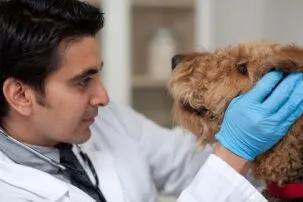A veterinarian, often simply referred to as a vet, is a medical professional who specializes in the treatment and care of animals. Just like doctors for humans, veterinarians are trained to diagnose and treat a wide range of illnesses and injuries that can affect animals. They also play a crucial role in preventative care, such as administering vaccinations and providing advice on nutrition and overall well-being.
Vets can work with a variety of animals, including household pets like dogs, cats, and birds, as well as livestock such as cows, pigs, and horses. Some veterinarians may also specialize in treating exotic animals, wildlife, or zoo animals. They may work in private practices, animal hospitals, research facilities, or even in government agencies.
The responsibilities of a veterinarian can vary widely depending on their area of expertise. They may perform surgeries, prescribe medications, conduct diagnostic tests, and provide emergency care for injured or sick animals. In addition to treating physical ailments, veterinarians also play a vital role in public health by monitoring and controlling the spread of diseases that can be transmitted from animals to humans.
Becoming a veterinarian requires extensive education and training. Prospective vets must complete a Doctor of Veterinary Medicine (DVM) degree from an accredited veterinary school, which typically takes four years to complete. After graduating, they must also pass a licensing exam in order to practice.
Overall, veterinarians are essential for ensuring the health and well-being of animals, as well as for promoting the safety of the human population. Their dedication to the care and treatment of animals makes them invaluable members of the healthcare community.

